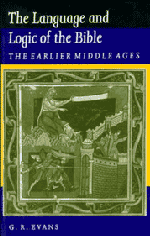Book contents
- Frontmatter
- Contents
- Preface
- Acknowledgements
- List of abbreviations
- List of ancient and mediaeval sources
- Biographical notes
- Introduction
- Part I The background
- Part II Lectio: surface and depths
- Part III Disputatio
- 8 Questions
- 9 Contradictory authorities
- 10 A new approach to resolving contradictions
- Conclusion
- Notes
- Select bibliography
- Index
9 - Contradictory authorities
Published online by Cambridge University Press: 01 June 2011
- Frontmatter
- Contents
- Preface
- Acknowledgements
- List of abbreviations
- List of ancient and mediaeval sources
- Biographical notes
- Introduction
- Part I The background
- Part II Lectio: surface and depths
- Part III Disputatio
- 8 Questions
- 9 Contradictory authorities
- 10 A new approach to resolving contradictions
- Conclusion
- Notes
- Select bibliography
- Index
Summary
No one confronted the problem of contradiction so boldly in the middle years of the twelfth century as Peter Abelard. His thoughts are so striking, and in certain respects in a class of their own, that we must consider them briefly before we look at what was perhaps the most successful solution, technically speaking, to be formulated before the end of the twelfth century.
Abelard the controversialist struck a response from a worthy opponent. William of St Thierry (c. 1085–1148) (aspiring friend of St Bernard whom he came to dominate intellectually and continued to regard with the humblest admiration) had a natural bent for research. After a period as a student, probably at Laon, where he would have been taught by the brothers Ralph and Anselm, he became a Benedictine monk. When he first met Bernard soon afterwards he was powerfully drawn to the Cistercian life. For many years Bernard firmly discouraged him from breaking his former vows, until in 1135 he permitted him to enter the Cistercian monastery at Signy and begin his Cistercian life there. In the meantime William had been abbot of St Thierry and had become a considerable scholar. When he arrived at Signy he had already written several monographs and had a file of notes from his reading. Much of the work he subsequently put together from his notes was not more than compilation, a collection of extracts from Gregory on the Song of Songs and another on the same subject taken from St Ambrose.
- Type
- Chapter
- Information
- The Language and Logic of the BibleThe Earlier Middle Ages, pp. 133 - 139Publisher: Cambridge University PressPrint publication year: 1984



